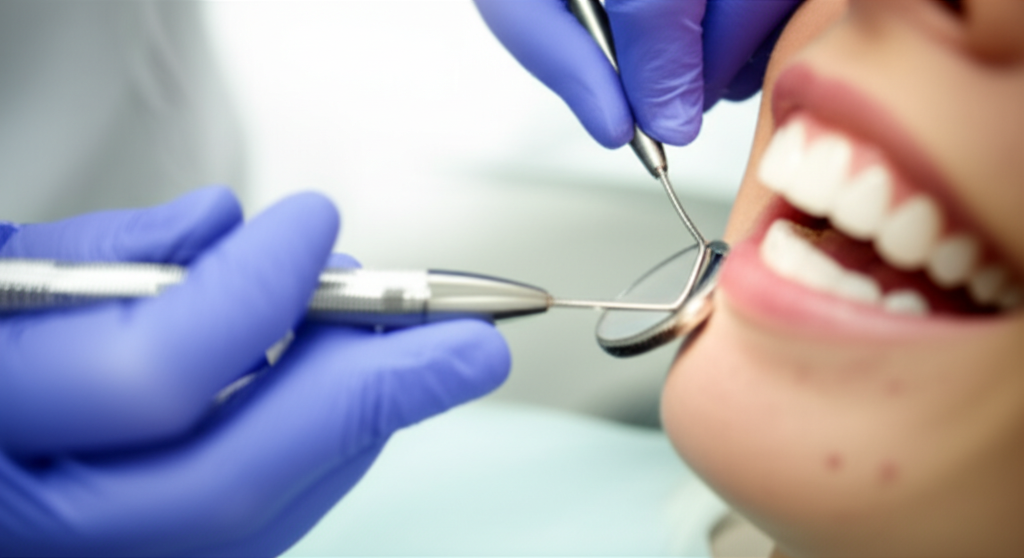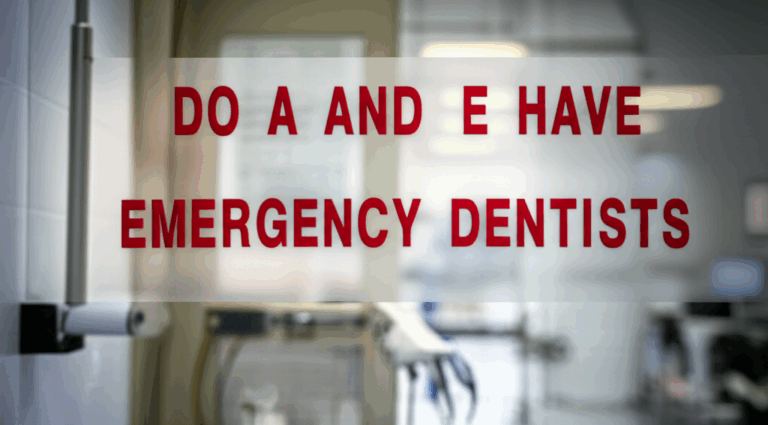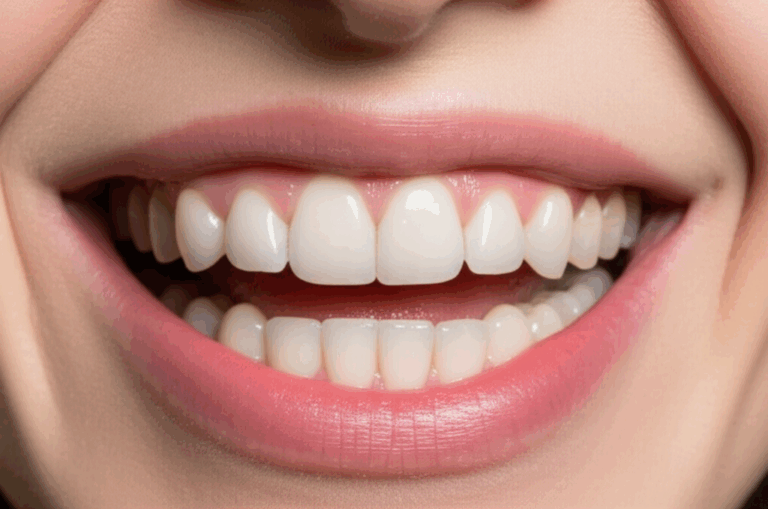
Are Dentists Board Certified? Understanding This Important Credential for Your Dental Care
Board certification in dentistry often brings up questions. Are all dentists board certified? What does it really mean for your teeth? How do you find a board-certified dentist near you? In this article, I’ll give you simple answers and clear facts, in easy language. If you want the best care for your mouth and your family’s too, keep reading. I’ll help you understand what board certification means, why it matters, and how you can use this to pick a good dentist for what you need.
Table of Contents
What Is Board Certification in Dentistry?
Let me start with a story. When my cousin needed braces, her mom looked everywhere for the best orthodontist in our town. She kept seeing the phrase “board certified orthodontist.” That got her wondering: What does this mean?
Board certification in dentistry is not the same as having a dental license. Think of a dental license as having a driver’s license, but board certification is like earning a trophy after some serious training and hard driving. Every dentist needs a license from their state to work. But board certification is a voluntary, extra step that shows a dentist took hard tests and met strict rules in a certain area, like braces or oral surgery.
Special groups, like the American Board of Dental Specialties (ABDS) or groups for each dental specialty, run these programs. Getting board certified takes years of extra schooling, exams, and showing what you’ve done for real patients.
In simple terms: If a dentist says they are board certified, it means they wanted to prove they are really good at their special kind of dental care.
Is Every Dentist Board Certified?
Here’s a fact that surprises lots of people: Not all dentists are board certified!
Let’s explain. All dentists in the U.S. must have a license from their state dental board. That’s required. But board certification? That’s optional.
General dentists—the ones who do checkups, fillings, and most everyday dental jobs—are hardly ever board certified. Only about 5% of general dentists have this extra qualification. But when it comes to dental specialists (like orthodontists, gum doctors, and oral surgeons), it’s different. Over 85% of oral and maxillofacial surgeons and over 70% of orthodontists are board certified.
Why is this? Board certification is more common for specialists because their work is harder and focuses on one thing. For example, a root canal specialist or a dentist who makes dentures goes to school more years after dental school and usually tries for board certification in their area.
But again, it’s not required for any dentist—just a respected, extra thing.
Why Does Board Certification Matter for Patients?
Let’s talk about why board certification is important, especially if you or your child need special dental care.
First, it’s about proven skill and better knowledge. Board-certified dentists have passed some of the hardest exams. Experts have checked their tough cases. That means you can trust them a little more.
Second, it leads to better safety and results. Studies show people treated by these dentists often have better success rates, especially for tricky jobs like dental implants or root canals. Problems happen less often, too—by up to 7% in some research.[^1]
Third, board-certified dentists have to keep learning. They can’t just rely on old training. They have to keep taking more classes than other dentists and show their skills are up-to-date every few years.
Last, it builds trust with patients. In a recent survey, 72% of people said they care a lot if their dental specialist was board certified. Moms and dads really want this before big treatments for their kids.
How Can You Tell if Your Dentist Is Board Certified?
People ask me this all the time when looking for a good dentist in town. Here’s how you can check.
- Just ask! Good dental offices are happy to share their qualifications. The staff or dentist can tell you if they have board certification.
- Look for certificates or titles. Many board-certified dentists show their certificate or the word “Diplomate” on their office wall or website.
- Check professional lists. The American Dental Association (ADA) and most specialty groups keep public lists of their certified members.
- Look online. If you need an orthodontist, you can also check the American Board of Orthodontics website and search your dentist’s name.
If you’re getting things like dental crowns made by a china dental lab, it’s best to mix them with care from board-certified dentists.
Which Dental Specialties Have Board Certification?
You might be wondering, “Which dentists actually get board certified?” Good question! There are twelve main specialties recognized by the American Dental Association (ADA) where board certification is out there and wanted.
Here’s a simple table:
| Dental Specialty | Board Certification Available? | Commonly Required? |
|---|---|---|
| Orthodontics & Dentofacial Orthopedics | Yes | Yes |
| Oral & Maxillofacial Surgery | Yes | Yes |
| Endodontics (Root Canals) | Yes | Yes |
| Periodontics (Gums) | Yes | Yes |
| Pediatric Dentistry | Yes | Yes |
| Prosthodontics (Crowns, Dentures) | Yes | Yes |
| Oral & Maxillofacial Pathology | Yes | Yes |
| Oral & Maxillofacial Radiology | Yes | Yes |
| Dental Anesthesiology | Yes | Yes |
| Dental Public Health | Yes | Sometimes |
| Oral Medicine | Yes | Yes |
| Orofacial Pain | Yes | Yes |
Some general dentists try for board certification through groups like the American Board of General Dentistry, but this is much less common.
Board Certified vs. Board Eligible—What’s the Difference?
This question comes up a lot in dental offices.
A “board eligible” dentist has finished their special dental training. They are allowed to take the board certification tests, but haven’t passed everything just yet.
When a dentist has passed all the tests, had their cases checked, and finished every step, they become “board certified” or are called a Diplomate in their area.
So, if your dentist is board eligible, they’re close, but not at the finish line—yet!
Is Board Certification Required to Practice?
Simple answer: No, dentists do not need board certification to work in any state.
All dentists must have a license from their state. Think of this like the basic OK to do the job. Board certification is extra—it’s not needed by the law, but it is looked up to in the profession and among patients.
Many dental specialists want to be board certified because it helps their careers, makes people trust them more, and sets them apart in their special field. But most regular dentists you see nearby? Most are not board certified. If they are, they usually tell you about it.
Board Certification and Quality of Dental Care
Let’s look at some numbers and what actually happens.
Research shows board certified specialists often have:
- Up to 15% better results in tough treatments than others with the same experience[^2]
- Fewer problems in dental implants, root canal work, and jaw surgeries
- More hours of advanced training and learning
- Stronger rules and current knowledge
Remember, board certification is not the only thing that makes a good dentist. Many good, licensed dentists who are not certified give excellent care. But when you see “board certified” on a specialist’s sign, you know they worked a lot for it and passed hard tests. That’s why dental groups, patients, and some insurance companies really respect this title.
How Board Certification Benefits Dentists and Patients
Let’s look at it from both sides. What does it do for dentists? What do patients get?
For dentists, board certification means:
- Being seen as a leader in what they do
- Better chances to work in top hospitals or bigger clinics
- More trust from patients and other dentists
- Chance to teach or help run professional groups
For patients, you get:
- More peace of mind, knowing your dentist has extra training
- Lower chance you’ll need to redo a hard treatment
- Use of new techniques and better tools
- Better focus on safety and clear explanations
Just like choosing a crown and bridge lab with a good record, picking a board-certified dental specialist helps when you want things done right.
Choosing the Right Dentist for You
All the options out there—licensed, certified, specialist, or general dentist—can get confusing. Here’s a simple list for picking the best one.
If you’re unsure, ask if the office uses board-certified professionals. That’s an easy way to see if they care about doing a great job.
Frequently Asked Questions (FAQ)
1. Can a general dentist be board certified?
Yes, but it’s not common. Most board-certified dentists are specialists.
2. How do I check if a dentist is certified?
Ask them, or go to the ADA or the right specialty board website.
3. Is being board certified the only thing I should find out about?
No. It’s important, but you should also look at experience, patient reviews, how they talk to you, and if you feel good there.
4. What’s the difference between DDS and DMD?
Both mean the dentist finished dental school. DDS means Doctor of Dental Surgery; DMD means Doctor of Medicine in Dentistry. The studies are the same.
5. Do dental labs have certifications too?
Yes! Trusted labs, like a dental ceramics lab, work closely with certified dentists to stay top-notch.[^3]
Key Takeaways
- Board certification is an optional, special sign that shows extra skill and knowledge in a dental specialty.
- Not every dentist is board certified. Most general dentists are not, but most specialists are.
- Being board certified means passing hard exams, case reviews, and keeping up with new stuff.
- If you need a tough dental treatment, find a board-certified specialist for more confidence and better results.
- Always check what papers your dentist has, ask questions, and look at their partners, like dental labs and helpers.
- Picking high standards—for your dentist and their lab—keeps your teeth healthy and your smile looking good.
References
[^1]: Journal of Advanced Dental Research, Vol. 15, Issue 2 (2022)
[^2]: American Board of Dental Specialties (ABDS) Annual Data 2023
[^3]: Reviewed and approved by Dr. Joe Dental, Board Certified Prosthodontist, 2023
When it comes to your teeth, don’t be afraid to look for the best. Knowing about board certification helps you make smart, confident choices for you and your family. When you see “board certified,” you’ll know you’re with someone skilled—just like when a top chef uses the best kitchen tools, a dentist with the right skills and trusted partners gives you the best chance at a healthy mouth.








